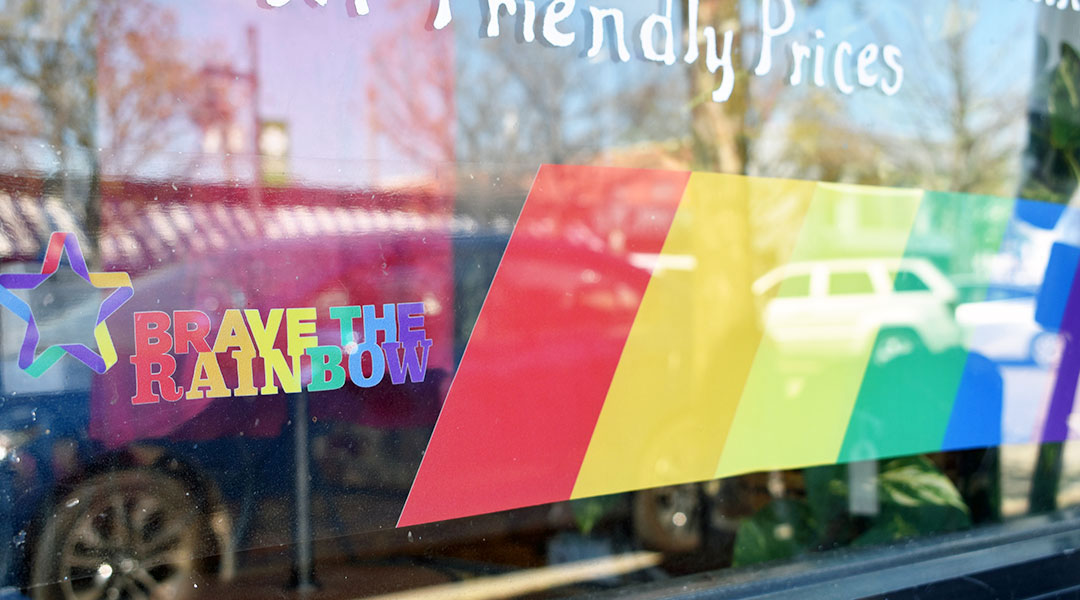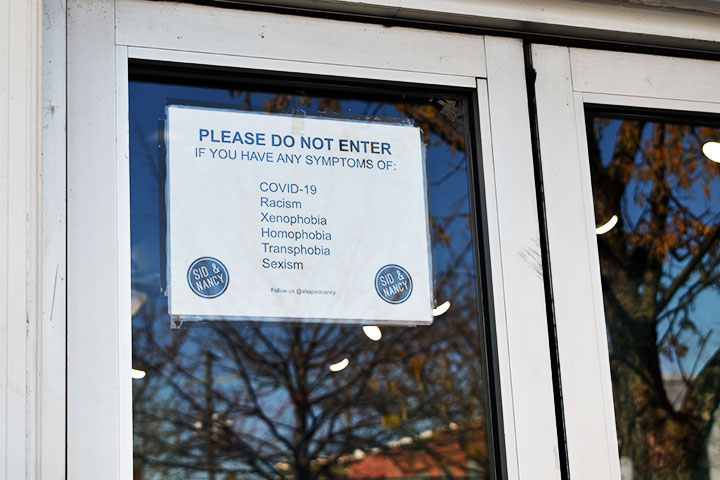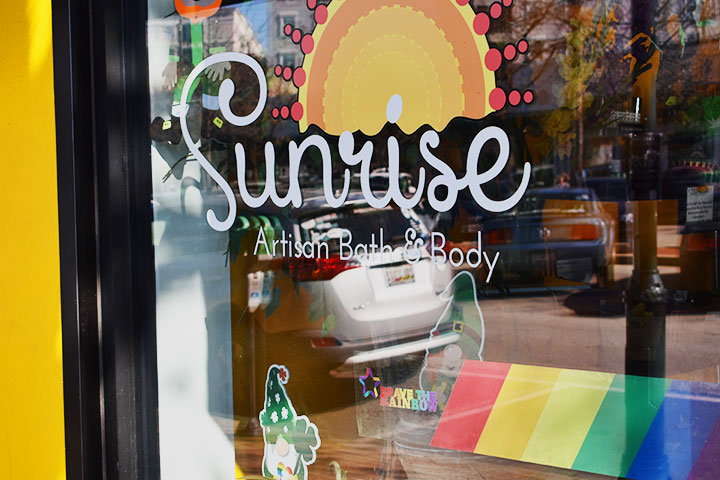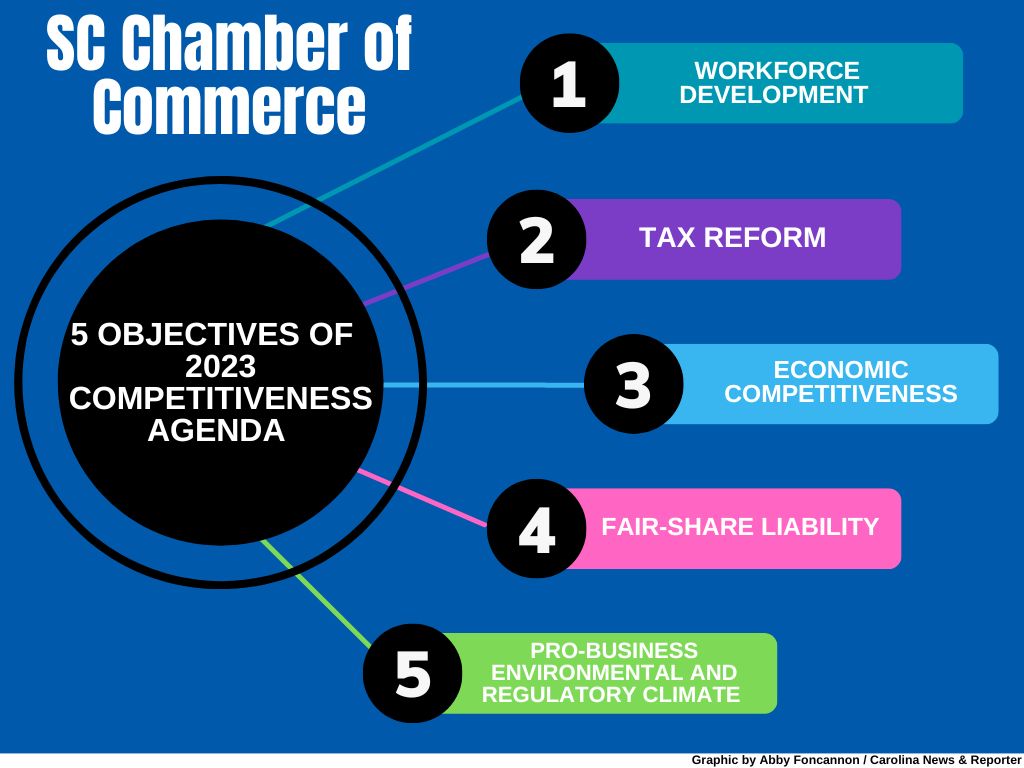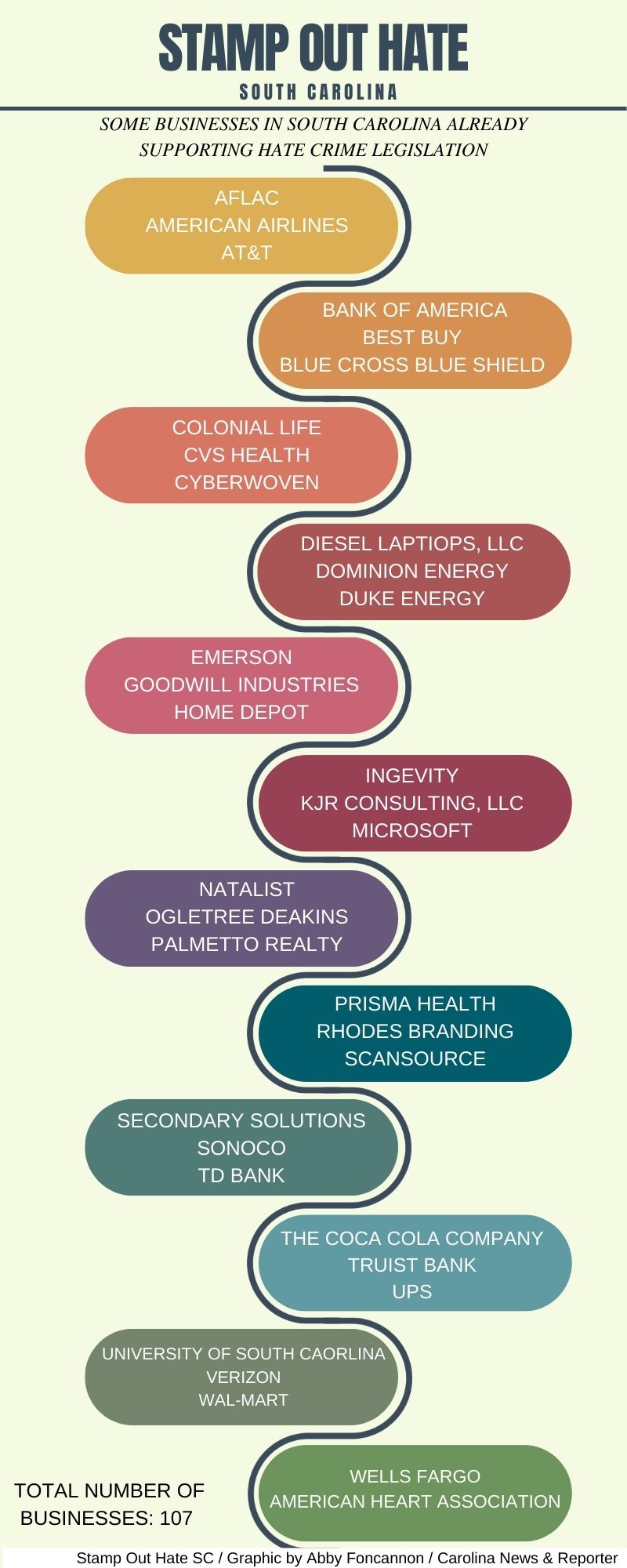2G’s Clothing Company in Five Points adorns its front windows and doors with stickers supporting local small businesses. One of the stickers says “Brave the Rainbow” in support of the LGBTQ+ community. This sticker, along with the parallelogram rainbow, can be seen on a number of business windows downtown. (Photos by Abby Foncannon)
The “Clementa C. Pinckney Hate Crimes” bill, creating penalties for hate crimes, has been sent to the S.C. Senate for the second time.
The House approved the hate crimes bill in a 84-31 vote March 8. The bill will now be considered by the Senate Judiciary Committee.
The bill was first introduced and passed by the House during the 2021-22 session but failed to pass in the Senate.
There are fears the bill will be turned away again in the Senate.
South Carolina is one of two states, along with Wyoming, that doesn’t have a state-level hate crimes bill.
The bill would add penalty enhancements for offenses against a victim if the offender selected that person “because of a belief or perception regarding the victim’s race, color, religion, sex, gender, national origin, sexual orientation, physical or mental disability, age, political opinion, or the exercise of a person’s political rights and privileges,” according to the bill.
House Rep. Wendell Gilliard, D-Charleston, spearheaded the push for a hate crimes bill and is its main sponsor.
“When you have hate crime laws, people are more apt to come forward and report hate crimes,” Gilliard said. “… People start talking openly about (hate crimes), and you’re in a position to try to have preventive measures in place to offset these things.”
There is no mandate across all 46 counties in South Carolina for recordkeeping of hate crimes.
“People have to understand the seriousness of this,” Gilliard said. “We got to be on the side of righteousness and justice. Just by having (a) hate crime law, you create dialogue.”
Some members of the S.C. business community have concerns about the lack of a bill.
“When you’re one of two states in the country that hasn’t done something that a lot of people consider to be important in terms of protecting targeted minorities, it starts to be a red flag,” said Brandon Fish, the director of community relations at the Charleston Jewish Federation.
The federation is a prominent organization in the S.C. business community and heavily advocates for bringing a hate crimes bill to the legislative calendar.
Fish, along with the rest of the group, is helping to lead the effort to advance hate crimes legislation.
“It sends a message,” Fish said. “What’s going on in South Carolina and Wyoming that they wouldn’t want to pass a hate crimes law? And that message isn’t lost on businesses. It’s not lost on hate groups.”
There are online conversation threads where white supremacists are asking each other for the friendliest places to move to, and some have noted that South Carolina is one of two states that has not passed hate crimes legislation, Fish said.
“We (South Carolina) are in the top-10 tier of newly created hate groups,” Gilliard said.
Hate crimes legislation was not given enough support from business leaders and owners throughout the state to be its own area of legislative focus for the chamber this year, said Will Frierson, the chamber’s vice president of government affairs.
Instead, it is considered under the umbrella of economic competitiveness when the group lobbies lawmakers.
“The passage of a hate crime bill falls under this bucket because it signals that South Carolina is an open, welcoming state for all individuals,” Frierson said.
Economic competitiveness ensures that South Carolina remains enticing to new and existing employers and workers. The state must continue to invest in infrastructure and encourage economic growth to remain competitive with other states, according to the chamber’s legislative agenda.
The five main areas of focus of the 2023 Competitiveness Agenda are:
- Workforce development
- Tax Reform
- Economic Competitiveness
- Fair-Share Liability
- Pro-Business Environmental & Regulatory Climate
The chamber worked with nearly 50 local chambers of commerce and major business leaders statewide to determine the top issues.
“Based on the feedback and data … it was clear that the desired focus of the business community this legislative session was resoundingly workforce development,” Frierson said.
The chamber looks to develop a legislative agenda that reflects the needs of all businesses across the state, Frierson said.
But lawmakers bear the ultimate responsibility, Charleston’s Fish said. It’s disappointing, he said.
It “sends a message to people and businesses about what our priorities are as a state.”
The front entrance of the Sid & Nancy clothing store in Five Points displays many signs. One says people who are racist, homophobic, transphobic or sexist should not enter the business.
Sunrise Artisan Bath & Body in Five Points has a “Brave the Rainbow” sticker on its front window. The business invites anyone, of any minority, to come in and enjoy the products it has to offer.

